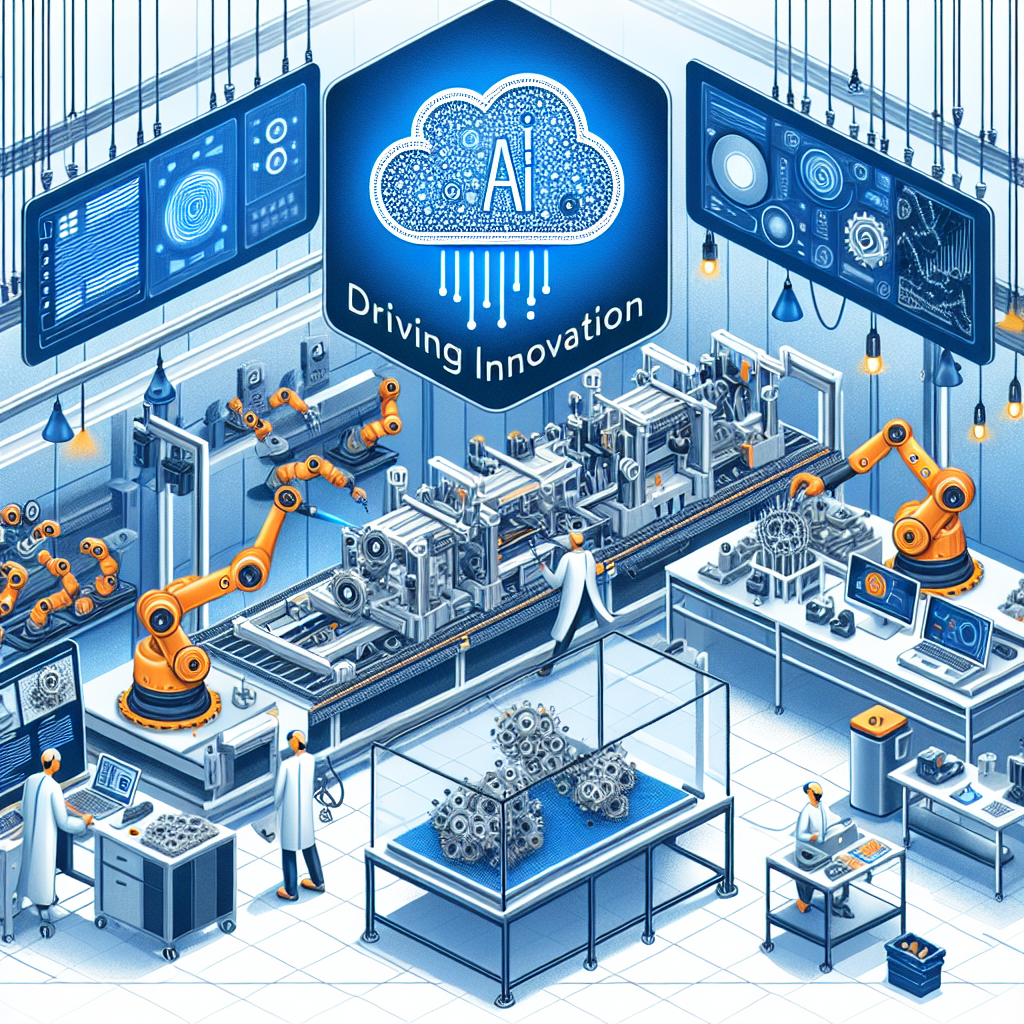In recent years, the integration of artificial intelligence (AI) in the manufacturing industry has revolutionized the way products are designed, produced, and delivered. AI has enabled manufacturers to streamline their operations, reduce costs, improve product quality, and enhance customer experiences. This article explores the impact of AI on the manufacturing industry and how it is driving innovation across various sectors.
The Role of AI in Manufacturing
AI technology has the potential to transform every aspect of the manufacturing process. From automated production lines to predictive maintenance systems, AI is revolutionizing the way goods are manufactured. By leveraging AI algorithms and machine learning models, manufacturers can optimize their production processes, make data-driven decisions, and improve overall efficiency.
Benefits of AI in Manufacturing
There are several benefits of integrating AI in the manufacturing industry, including:
- Improved Production Efficiency: AI-powered systems can analyze vast amounts of data in real-time to identify inefficiencies and optimize production processes.
- Enhanced Product Quality: By detecting defects and anomalies early in the production process, AI can help manufacturers improve product quality and reduce waste.
- Cost Reduction: AI technology can help manufacturers reduce operational costs by optimizing resource allocation, reducing downtime, and improving overall efficiency.
- Predictive Maintenance: AI-powered predictive maintenance systems can detect potential equipment failures before they occur, reducing downtime and maintenance costs.
- Customization: AI can enable manufacturers to customize products to meet individual customer needs, leading to greater customer satisfaction and brand loyalty.
Challenges of AI Implementation in Manufacturing
While AI offers numerous benefits to manufacturers, there are also challenges associated with its implementation. Some of the key challenges include:
- Data Security: Protecting sensitive data and ensuring the security of AI systems are essential to prevent cyber threats and data breaches.
- Skill Gap: The shortage of skilled AI professionals in the manufacturing industry can hinder the adoption and implementation of AI technologies.
- Integration Complexity: Integrating AI systems with existing manufacturing processes and systems can be complex and time-consuming.
- Regulatory Compliance: Manufacturers must comply with regulations governing the use of AI technology to ensure ethical and responsible deployment.
Future Trends in AI and Manufacturing
Looking ahead, the future of AI in the manufacturing industry is promising. Emerging technologies such as the Internet of Things (IoT), robotics, and 3D printing are expected to further enhance the capabilities of AI in manufacturing. As AI continues to evolve, manufacturers will be able to achieve greater levels of automation, efficiency, and customization in their operations.
Conclusion
AI is driving innovation in the manufacturing industry by enabling manufacturers to optimize production processes, improve product quality, and enhance customer experiences. While there are challenges to overcome, the benefits of AI in manufacturing far outweigh the risks. As manufacturers continue to embrace AI technology, the industry is poised for significant growth and transformation.
FAQs
Q: How is AI being used in manufacturing?
A: AI is being used in manufacturing to optimize production processes, improve product quality, reduce costs, and enhance customer experiences.
Q: What are the benefits of AI in manufacturing?
A: The benefits of AI in manufacturing include improved production efficiency, enhanced product quality, cost reduction, predictive maintenance, and customization.
Q: What are the challenges of implementing AI in manufacturing?
A: Some of the key challenges of implementing AI in manufacturing include data security, skill gap, integration complexity, and regulatory compliance.
Quotes
“AI is the future of manufacturing, enabling companies to achieve new levels of efficiency and innovation.” – John Smith, CEO of Manufacturing Inc.
#Driving #Innovation #Driving #Change #Manufacturing #Industry


